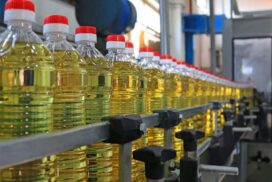More than 230,000 tonnes of fuel oil were allowed to be imported in September 2022, according to the Supervisory Committee on Oil Import, Storage and Distribution of Fuel Oil.
The committee draws up Standard Operating Procedures (SOPs) on fuel import, storage and distribution and reports fuel import matters to the Foreign Exchange Supervisory Committee.
This month, fuel importers have an import quota of 233,594.60 tonnes, with 80,499 tonnes of gasoline and 153,095.60 tonnes of diesel.
That is why fuel oil is sufficient in the domestic market. Oil tankers are unloading fuel oil at terminals of Thilawa Port; with 51.17 million gallons of diesel and 60.37 million gallons of premium diesel unloaded by MT Yu Dong ship and 42.33 million gallons of Octane 92 and 92.25 million gallons of diesel by MT Yu Hai.
The committee is issuing the daily reference rate for oil to offer a reasonable price to energy consumers. The reference rate is set on the MOPS’ price assessment, shipping cost, profit margin, premium insurance and other general costs.
On 23 September, the prices stood at K2,240 per litre for Octane 92, K2,320 for Octane 95, K2,730 for diesel and K2,815 for premium diesel.
However, the market prices are way higher than the reference rates.
The authorities are taking action against those retailers of fuel stations under the Petroleum and Petroleum Products Law if they are found overcharging.
Additionally, the committee in cooperation with Myanmar Petroleum Trade Association has been distributing fuel oil efficiently to ensure energy sufficiency in each township of the regions and states. However, armed groups’ attacks on fuel oil browsers and barges caused delays in supply to the fuel stations at some townships, according to a statement.
Therefore, to fulfil the energy requirements in some regions and states, the committee is supervising fuel oil import via cross-border areas under the approval of the related state government.
Last April, some petrol stations allegedly suspended fuel sales and set limited sales, sparking consumers’ concerns and raising fuel prices. The committee was formed to steer the oil sector effectively not to have a shortage of oil in the domestic market and ensure price stability and quality for energy consumers.
Ninety per cent of fuel oil in Myanmar is imported, while the remaining 10 per cent is produced locally. The domestic fuel price is highly correlated with international prices. The State is steering the market to mitigate the loss between the importers, sellers and energy consumers. Consequently, the government is trying to distribute the oil at a reasonable price compared to those of regional countries.
Some countries levied higher tax rates and hiked oil prices than Myanmar. However, Malaysia’s oil sector receives government subsidies and the prices are about 60 per cent cheaper than in Myanmar. Every country lays down different patterns of policy to fix the oil prices. Myanmar also poses only a lower tax rate on fuel oil and strives for energy consumers to buy the oil at a cheaper rate. – NN/GNLM
Over 230,000-tonne quota set for fuel oil importers in Sept
- September 24, 2022
- 1349














